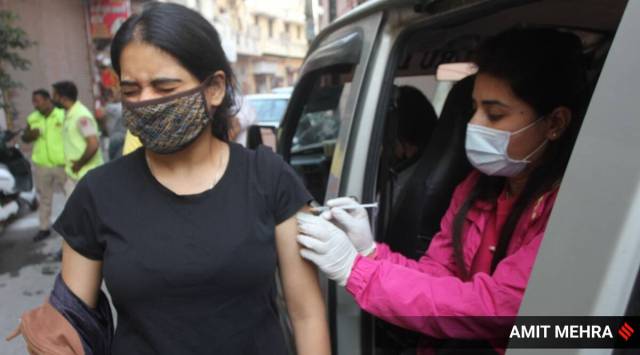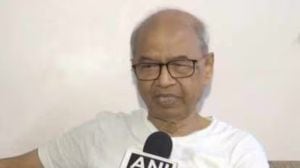Click here to join Express Pune WhatsApp channel and get a curated list of our stories
Pune: Experts discuss ways to boost resilience in a post-Covid world
Educating people on vaccines is critical, says vaccine expert Dr Stanley Plotkin, while Dr Krishna Ella of Bharat Biotech said we must be able to predict and prepare for 5-6 diseases. They were speaking at the Asia Economic Dialogue.
 Vaccine hesitancy is a worldwide phenomenon, but people's reservations must be allayed by convincing them that vaccines are highly protective. (File)
Vaccine hesitancy is a worldwide phenomenon, but people's reservations must be allayed by convincing them that vaccines are highly protective. (File)Lauding India’s position as the world’s biggest vaccine manufacturer and major supplier, world-renowned vaccine consultant and Emeritus Professor at the University of Pennsylvania, Dr Stanley Plotkin said research of 20-odd years in technology helped develop the Covid-19 vaccine in a short period of time.
“Indian vaccine producers reacted rapidly to the need to develop and make available the vaccine but what is noteworthy is that the regulatory authorities demonstrated the capability to process the huge amount of data and give the necessary clearances,” said Dr Plotkin who is also Adjunct Professor at John Hopkins University.
“Educating people is equally critical as they should be educated about the importance of vaccine in saving health,” he said at a discussion on ‘India’s Contribution in Reducing Global Vaccine Inequity’ on the third day of the Asia Economic Dialogue, a geoeconomics conference organised by Pune International Centre jointly with the Ministry of External Affairs from February 23-25.
The theme for Asia Economic Dialogue 2022 is ‘Resilient global growth in a post-pandemic world’. The discussion was chaired by Dr Raman Gangakhedkar, former head of epidemiology at the Indian Council of Medical Research. Dr Krishna Ella, Chairman and MD of Bharat Biotech International Ltd, eminent virologist Dr Gagandeep Kang participated in the discussion as panellists.
Dr Krishna Ella said nature has been giving us signals about the possible threats in future and we should be prepared with work on five or six predictable diseases so that vaccines to treat them can be produced in a very short time. “India took lead in creating huge capacities for producing Covid-19 vaccine but has to think about how these capacities will be utilised once the pandemic’s pressure reduces,” he said.
Vaccine hesitancy is a worldwide phenomenon, but people’s reservations must be allayed by convincing them that vaccines are highly protective, experts said during the discussion. A greater engagement of the government with the vaccine manufacturers as well as the involvement of civil society in the education of communities about the need for vaccination will also go a long way in achieving higher immunity, the panellists added.
Dr Kang said there is a need to reduce the gap between variant-specific vaccines and a variant-proof vaccine, which will be broadly protective. She said vaccination is as important as developing vaccines and in addition to government efforts, involving civil society in the vaccination drive can fetch greater results. Government should also consider higher investments in research and development and banks too have a role here, she added. “The pandemic has led to a greater trust of the government in vaccine manufacturers and it is now open to work with the manufacturers,” she pointed out, adding that India should create a strong network for clinical trials which can be used for fast recruitment of patients for trials in a short time.
Dr Umesh Shaligram, Director (R&D), Serum Institute of India, said the vaccine they supplied was very cost-effective and saved millions of lives. “The company is receiving approvals for its vaccine from more countries. We are now engaging in adapting new technologies in a short time,” he said.
Click here to join Express Pune WhatsApp channel and get a curated list of our stories







